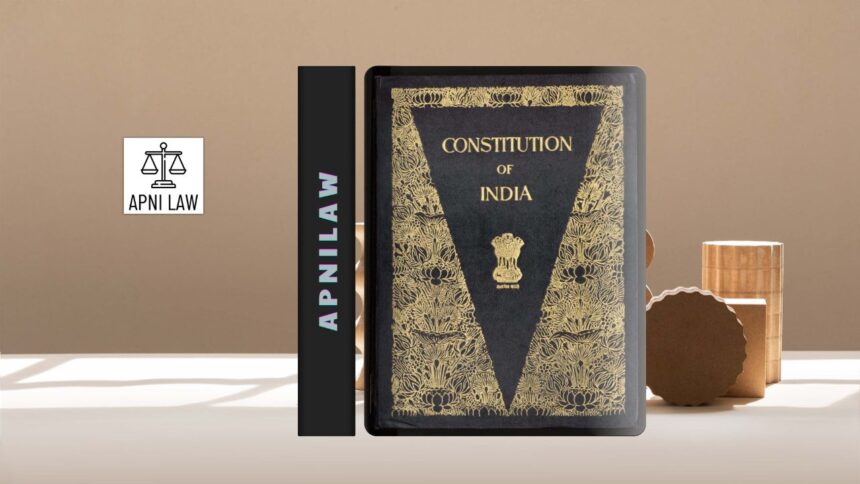What Is the Collective Responsibility of Ministers?
Collective responsibility forms the core of parliamentary democracy. It ensures that the Council of Ministers speaks with one voice before the Lok Sabha. The principle creates unity within the government and strengthens public trust. It means that every minister must support Cabinet decisions in public, even if they debated or disagreed during internal meetings. Once the Cabinet arrives at a conclusion, the entire Council is bound to defend it.
This responsibility also means that the government survives only while it enjoys the confidence of the Lok Sabha. If the Lok Sabha approves a vote of no confidence, the entire Council of Ministers must resign together. This rule protects the stability of the system because it prevents individual ministers from distancing themselves from collective decisions. Cabinet secrecy works hand in hand with this principle. Ministers debate freely behind closed doors, but they maintain absolute confidentiality once a decision is final.
The Prime Minister plays a central role in enforcing collective responsibility. The Prime Minister guides discussions, maintains unity and ensures that every minister supports government policy. Even if a minister disagrees, they cannot publicly oppose the decision. They must either accept it or resign. This rule makes the government appear united and coherent before the public and Parliament. The principle keeps the executive answerable and helps present a stable governing front to citizens.
How Does Individual Responsibility Work for Ministers?
Individual responsibility makes each minister accountable for their own department. While the Council shares collective duties, each minister also carries personal responsibility for the performance of their ministry. This principle ensures that the administration of every ministry remains efficient and transparent. A minister must answer questions in Parliament and explain all actions taken under their authority.
If a ministry faces corruption, administrative lapses or policy failures, the minister must take responsibility. This holds true even when the minister had no direct personal involvement. Accountability flows from political duty rather than personal blame. The minister represents the department and must defend or correct its actions. If the failure is serious, the minister may resign to uphold the ethical standards of public office.
This principle strengthens democratic accountability by ensuring that no department can escape scrutiny. It also encourages ministers to maintain control over their officials and ensure that they follow government policy. The Prime Minister supervises the performance of each minister and may recommend dismissal if a minister fails to manage their department effectively. Individual responsibility thus ensures discipline, ethical conduct and administrative efficiency.
Why Does Collective Responsibility Matter in a Parliamentary System?
Collective responsibility is crucial because it maintains political stability. It prevents the government from presenting mixed signals. Without this principle, every minister might publicly voice personal opinions and weaken the authority of the Cabinet. The public and Parliament would see an unstable government that struggles to function as a team.
This principle also ensures the survival of majority rule. The Council of Ministers remains in office only as long as it enjoys the confidence of the Lok Sabha. If the Lok Sabha withdraws its support, the entire government steps down. Such a rule keeps the executive directly accountable to the elected representatives. It prevents ministers from avoiding responsibility and ensures that the government remains responsive to public opinion.
The principle also protects Cabinet confidentiality. Ministers can speak freely during meetings because they know discussions remain secret. Once the Cabinet finalises a decision, unity becomes mandatory. This balance between open debate and united action strengthens the functioning of parliamentary democracy.
Why Is Individual Responsibility Important for Good Governance?
Individual responsibility creates clear lines of accountability. Citizens and Parliament know exactly who is responsible for each policy decision and administrative act. When something goes wrong, the minister cannot blame subordinates. This direct accountability keeps the system transparent and prevents misuse of power.
It also encourages ministers to supervise their departments closely. Since they must answer for everything that happens under their authority, they ensure efficiency, discipline and adherence to policy. Individual responsibility strengthens ministerial performance and enhances the quality of governance.
Furthermore, this principle improves parliamentary control over the executive. During question hours, debates and discussions, ministers must defend their actions. If their explanations fail, they face pressure to resign. This constant scrutiny motivates ministers to maintain high standards of public service.
How Do These Two Principles Work Together?
Collective and individual responsibility complement each other to create a complete system of accountability. Collective responsibility ensures that the government acts as a unified body. Individual responsibility ensures that ministers take ownership of decisions within their departments. Together, they build a stable and transparent executive.
Collective responsibility keeps the Cabinet united. Individual responsibility keeps each ministry efficient. Collective responsibility maintains the confidence of the Lok Sabha. Individual responsibility ensures that ministers cannot escape scrutiny for failures.
Both principles strengthen democratic governance. They uphold the idea that the executive is not above Parliament. Citizens elect Parliament, and Parliament holds the executive accountable through these two mechanisms. The Prime Minister coordinates collective responsibility while monitoring the individual responsibilities of each minister. This creates a strong and disciplined system of government.
What Are the Key Differences Between Collective and Individual Responsibility?
Collective responsibility focuses on the Council of Ministers acting together. Individual responsibility focuses on each minister acting within their department. Collective responsibility requires all ministers to support Cabinet decisions publicly. Individual responsibility requires each minister to answer for specific administrative matters.
When the government loses a no-confidence vote, collective responsibility forces the entire Cabinet to resign. When a minister’s department fails, individual responsibility may require that minister to resign. Collective responsibility protects Cabinet unity. Individual responsibility promotes departmental accountability.
Both principles serve different purposes but support the same goal. They protect democratic values and ensure responsible government.
How Do These Responsibilities Shape Indian Parliamentary Democracy?
These principles form the backbone of responsible government in India. They maintain the balance between authority and accountability. Collective responsibility ensures government stability, and individual responsibility ensures administrative transparency. Together, they help Parliament monitor the executive effectively.
These responsibilities also strengthen ethical conduct in public office. Ministers know that they must act with integrity because they face both personal and collective accountability. This system encourages discipline, unity and effective governance.
For any specific query call at +91 – 8569843472
Conclusion
Collective and individual responsibility remain essential to India’s parliamentary framework. Collective responsibility keeps the Cabinet united and accountable to the Lok Sabha. Individual responsibility ensures that ministers manage their departments effectively and answer for all actions within their ministries. Together, these principles uphold the values of responsible government, transparency and democratic accountability. They strengthen the relationship between the executive and the legislature and ensure that governance remains stable, efficient and trustworthy.








